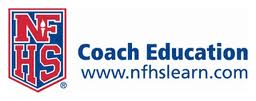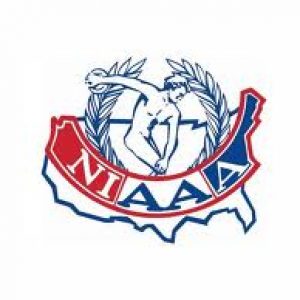
Below is a recent article by Tim Flannery on the NFHS recommendation that all school districts require that interscholastic coaches become certified as an Accredited Interscholastic Coach.
Tim is former A.D. at North Olmsted and is a past president of the OIAAA. He is being inducted into the NIAAA “Hall of Fame” in December at the national conference in Anaheim.

Why Require Coaches to be Certified?
Why should the National Federation of State High School Associations (NFHS) recommend that all school districts require that interscholastic coaches become certified as an Accredited Interscholastic Coach (AIC)? That question is being asked across the United states by school administrators, coaches and parents. AIC certification is earned when an individual completes four online courses, pays a $10 application fee and fills out a short profile form at www.nfhslearn.com
The answer to this question involves the health and safety of the students who participate, the legal responsibilities of the school district and coaches, and the elevation of interscholastic coaching to a profession through ongoing professional development.
Let’s consider each of these important reasons:
For the Health and Safety of the students who participate
A coach’s primary role is to make sure the students who participate are safe from potential harm and are cared for properly in the event of an injury. In addition, coaches are supposed to model the positive behaviors that will teach young people valuable lessons that can be used later in life.
Hardly a day goes by that we don’t hear on local television, in newspapers, or on the internet about a school coach who has acted inappropriately. Here are few headlines to make the point. These are the kind of headlines that can turn your school district upside down.
“High School Football coach charged in inappropriate relationship with a student” “Hockey coach charged in hazing ritual involving his team”
“Coach accused of using demeaning behavior and foul language by players”
“Local school coach charged with sexting with several members of the spirit squad”
Most states now require all new coaches to complete the NFHS Fundamentals of Coaching course, which is designed to educate coaches on all aspects of coaching at the interscholastic level. To address abuse concerns, the NFHS developed a free online course “Creating a Safe and Respectful Environment” to educate coaches regarding their role and responsibilites in dealing with inappropriate student behavior, modeling respectful words and actions, hazing and bullying and other abusive scenarios.
For the school district
Schools are judged by the quality of their academic, athletic and fine/performing arts programs. A school’s reputation can hang in the balance if any one of these programs is called into question. Is your team(s) an example of a program that wins with dignity and loses with class? Ask any opposing player, coach or parent which teams in your league model positive and respectful behavior and they will tell you in an instant. Is your team or program one that they would name?
School administrators and coaches must fulfill a number of legal duties to ensure that students participate in a healthy and respectful environment. One of the important legal responsibilities for school administrators is to select and train coaches and prepare them for their role as a teacher-coach in an educational institution. The training must relate to coaching in a school setting, which is vastly different than coaching a club team or community program. We sometimes refer to athletic programs as the “front porch of the school,” meaning that sport programs are the first thing the community sees. That perception may well determine the level of support the school district receives from voters when considering funding to operate a quality program.
Preserve education-based athletics in our schools
Athletics has been a part of our schools since the mid-1800’s. The United States is only major country that offers interscholastic sports as an extracurricular activity to over 7.5 million students who participate annually. One of the main reasons we offer these programs is the educational benefits students can derive from their participation.
Athletic programs face many challenges that some day may threaten their existence. Among these threats to school-based sports programs are the following: pay-to-play, financial cutbacks in athletic programs, the conflicts with club sports that force students to choose, parental pressure on coaches, state legislatures, and the influence of professional sports in our society. However, no challenge is greater than untrained coaches who often times put winning ahead of their primary role as a teacher- coach, which uses the sport experience to promote learning. When coaches put winning ahead of the educational outcomes (healthy lifestyles, good citizenship, sportsmanship, etc.) it “contaminates” the experience for the students who participate. This can result in negative effect on the students we serve.
Many people, including some of our coaches, have lost sight of the mission and purpose of interscholastic sport by placing an undue emphasis on winning at the expense of the educational mission. Sports are not automatically educational; however, if used appropriately sport can be a powerful learning tool. “Done right,” participants can learn important life lessons that cannot be learned in the classroom. What the coach chooses to teach and model determines to a large degree what students will learn from the experience.
The good news is that the skills a coach needs to make the sport experience educational can be learned. Schools must provide coaches the training and tools necessary to educate them in how to fulfill their role as a teacher first and a coach second. The NFHS Coach Education/Certification has over 34 courses schools can use to train and educate coaches. This information translates directly into real-life coaching situations.
Stay current in the ever changing profession of interscholastic coaching
Whether it is education, law, medicine or any profession, isn’t it important to stay current with best practices, new policies, and dealing with new issues? If coaching is ever going to rise to the level of a profession, coaches need to be current in teaching methods, minimizing risks, communicating and
motivating, administering their team or program and teaching students to be the best they can be in sports and in life.
Coaches who have not been educated on how to deal appropriately with such issues as concussion, hydration, non-abusive environment, sexual harassment and other topics have cast a dark shadow on some school teams and programs. Parents whose children participate in interscholastic sports assume the coach is knowledgeable in all areas of coaching. This expectation is real and warranted, and parents will hold coaches and school districts responsible if these issues are not dealt with appropriately.
The NFHS Board of Directors approved a coach education position statement in 2013 that recommends that school provide both initial training and ongoing professional development throughout the coach’s career.
If every school district in the United States followed the recommended coach education position statement, it would go a long way in providing the students we serve a positive learning experience, a safe environment, protection for the school district in a legal action, and help to preserve the institution of education-based sports for future generations.
Along with the goal of making coaching a profession is the value of building credibility with students, parents, school administration and the community. Credibility is not automatically given;-, it must be earned. This may be bothersome to those coaches who may have grown up in a time and place where respect was given without questions being asked. Things have changed; we live in a time where everything is questioned. For coaches to earn respect, they must understand how to play the role of the coach in an education-based setting. Every coach should strive to build credibility in several key ways.
Key #1 Coaches must demonstrate professionalism in their actions
- Prepare for practices and games. Make sure these practice plans are in writing.
- Submit required reports to the athletic department on time: before, during, and after theseason.
- Communicate effectively with students and parents. Develop an enforceable parent/coach communication policy.
- Conduct a preseason meeting with students and parents to communicate philosophy, parent/coach communication policy, teamsrules and expectations of students and parents.
- Model the behavior you want your students to exhibit, including but not limited to dress, language, sportsmanship, healthy lifestyle, and respect.
Key #2 Consistently communicate and enforce all rules and policies to students and parents including:
Team rules including codes of conduct.
- Athletic department polices including transportation, physical forms, use and care of equipment and uniforms and warning of the risk of participation.
- School rules including attendance, eligibility, grade point average etc.
- League rules.
- State association regulations.
- Playing rules of the sport.
Key #3 Demonstrate expertise in your sport
- Strive to be the most knowledgeable coach in your sport in your school, district and league.
- Teach the most up-to-date tactics and techniques of your sport.
- Join your local, state, and national coaching organizations. Volunteer to serve on committees or other leadership positions in the organization.
- Become an Accredited Interscholastic Coach (AIC) by completing the NFHS Fundamentals of Coaching, First Aid Health and Safety for Coaching, Fundamentals of Coaching (your sport) and Concussion in Sport-What You Need to Know courses.
- Commit to being a better coach by attending clinics, taking additional course work or becoming an Accredited or Certified Interscholastic Coach. Be a lifelong learner.
Key # 4 Support the school and athletic department philosophy and be a team member in the athletic department
- Actions must match your words.
- Keep a “student first and athlete second” mindset when making decisions.
- Treat your students as good parents would.
- Handle disagreements with students, parents, other coaches or the athletic department in private.
- Share facilities with other coaches in the building.
- Share athletes with other sports and discourage specialization.
- Share expertise with less experienced coaches. Be a mentor to others.
Work at developing positive relationships with other coaches and teachers even if you are not a teacher in the building.
There are many things interscholastic coaches should know and be able to do before they have contact with students and throughout their coaching career. NFHS Certification is a major step toward:
- ensuring that the health and safety our students is first and foremost in the minds of our coaches.
- allowing our school districts to say with certainty in a court of law that the coach was provided the proper initial and ongoing training necessary to perform the duties expected of an interscholastic coach.
- preserving interscholastic sport in our schools as an extension of the classroom where student participants learn important lessons of living a positive, healthy and productive life.
- Providing the coach a credential that signifies completion of content covering critical aspects that coaches should know.






